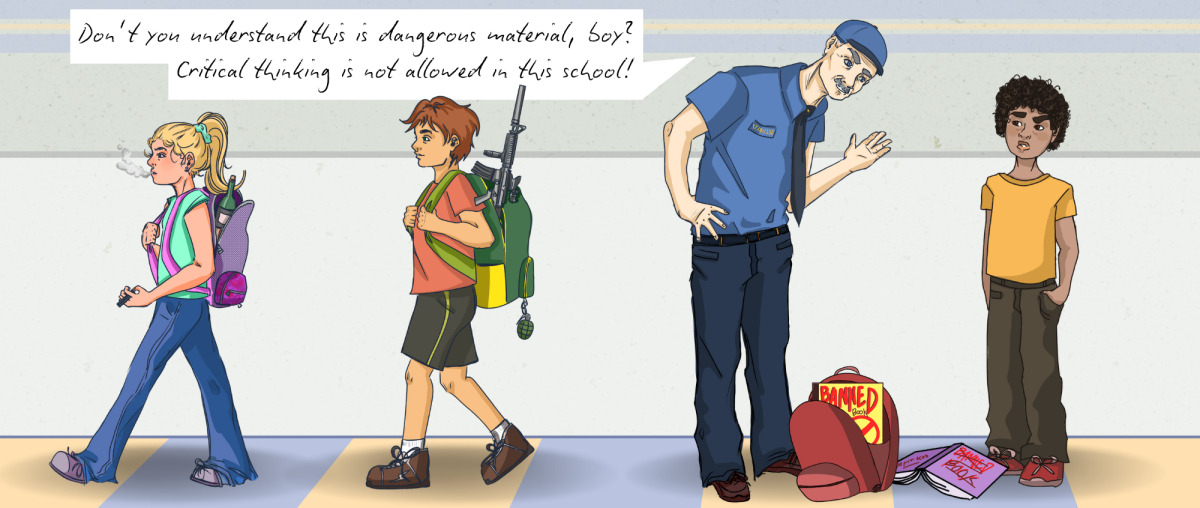“You can’t get addicted to it.” “Nobody can overdose on weed.” “It’s a harmless drug.”
These are all real narratives surrounding marijuana that have been instilled in me over the years, whether it be by the media, my peers or even trusted adults. Popular culture loves to portray marijuana usage as a very casual thing, when really it’s anything but.
Like any other drug, marijuana messes with your brain’s chemistry. While this can sometimes lead to what people perceive as positive effects, it also means that marijuana can have very serious and dangerous effects on one’s body.
“A lot of kids feel like they’re a lot more relaxed on [weed],” Dr. Gorgio Kulp, a pediatrician at Metropolitan Pediatrics in Rockville and father to David (‘15), Ariella (‘17) and Ethan Kulp (‘20), said. “But the reality is that marijuana technically has a very anxiety-provoking capacity, and so it really has the potential to cause serious effects, [like] anxiety, panic attacks and … a psychotic break.”
Unfortunately, I have seen first-hand how dangerous the effects of marijuana can be. In the past year, someone very close to me had an unhealthy relationship with marijuana and ended up in the hospital. The effects on this person’s mental health, behavior and overall life felt unbelievable, as they were caused by what I thought to be a harmless drug.
And I am far from the only one. Weed has completely altered the life of John and Patricia, a local couple living in Montgomery County. In their case, their son’s body’s reaction to marijuana triggered schizophrenia.
“When we first knew about it was a phone call at four o’clock in the morning, from the mother of his roommate,” Patricia said. “ … And this woman said … she’d had this phone call from her son who was scared that [their son] was going to commit suicide.”
The understanding is that the genome that causes schizophrenia was already inside John and Patricia’s son, but it was the marijuana usage that set it off. Once he began using marijuana, what started as just hearing voices inside his head ended up completely changing the course of his life. Though he was able to gain relative stability for ten years, in 2021, he lost everything: his wife, his job and his home, because of how uncontrollable his condition was. John and Patricia have not seen or heard from their son since August 2021.
Their son’s life-altering reaction to marijuana is not uncommon. Kulp repeatedly sees young adults with similar stories and explains, contrary to popular belief, how weed can be addictive.
“A lot of patients feel that [marijuana is] safer than alcohol because it doesn’t cause the hangover effects alcohol will,” Kulp said. “To me, that actually makes it more addictive because people see it as being so much more pleasant, [and that’s] going to be more reason to go ahead and have it more often.”
Another important factor to consider is the potency. John, Patricia and Kulp all cited studies that have shown marijuana today to be more potent than ever. Not only this, but Kulp explained that weed could be laced with drugs such as fentanyl, PCP, LSD and more. And because marijuana is now legalized in Maryland, it is more accessible than ever.
“Teenagers feel like they’re rather invincible and, as a result, they just don’t think anything will happen to them when they do these kinds of things, but there’s just great risk and they just don’t realize it,” Kulp said.
I know how damaging the effects of marijuana can be on both the person using it and their loved ones, so it is important to me that people see the full range of effects that marijuana may have so that we can limit the amount of harm it causes.
I know smoking weed may seem fun. I know a lot of people around you are doing it. But I am begging everyone to understand that marijuana is not always as harmless as it is portrayed. Be informed, talk to your own doctor, so that before you use it as a means of unwinding, you understand the effects that marijuana can have on you and the people you care about.








